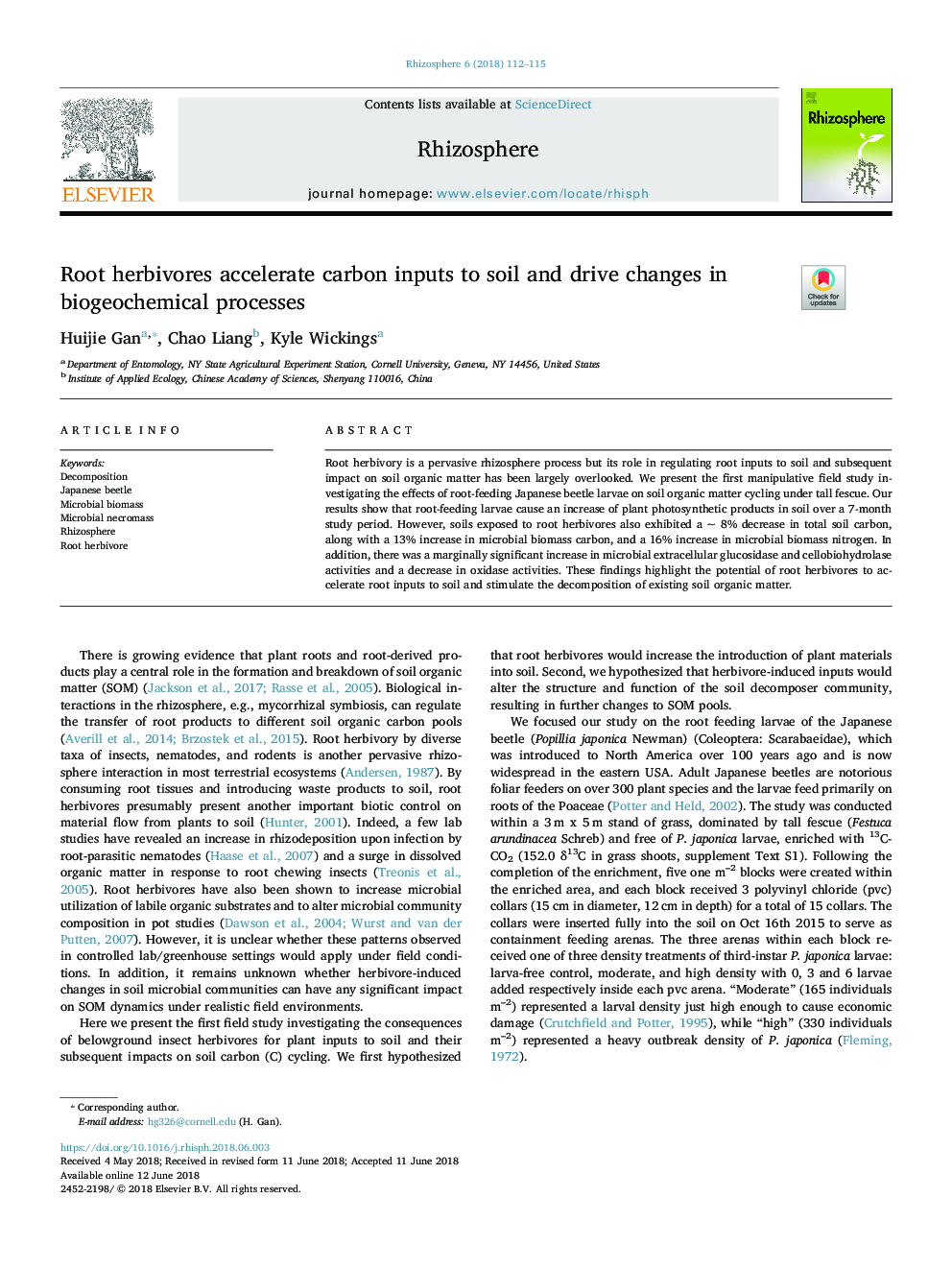| Article ID | Journal | Published Year | Pages | File Type |
|---|---|---|---|---|
| 8882178 | Rhizosphere | 2018 | 4 Pages |
Abstract
Root herbivory is a pervasive rhizosphere process but its role in regulating root inputs to soil and subsequent impact on soil organic matter has been largely overlooked. We present the first manipulative field study investigating the effects of root-feeding Japanese beetle larvae on soil organic matter cycling under tall fescue. Our results show that root-feeding larvae cause an increase of plant photosynthetic products in soil over a 7-month study period. However, soils exposed to root herbivores also exhibited a ~ 8% decrease in total soil carbon, along with a 13% increase in microbial biomass carbon, and a 16% increase in microbial biomass nitrogen. In addition, there was a marginally significant increase in microbial extracellular glucosidase and cellobiohydrolase activities and a decrease in oxidase activities. These findings highlight the potential of root herbivores to accelerate root inputs to soil and stimulate the decomposition of existing soil organic matter.
Related Topics
Life Sciences
Agricultural and Biological Sciences
Agronomy and Crop Science
Authors
Huijie Gan, Chao Liang, Kyle Wickings,
